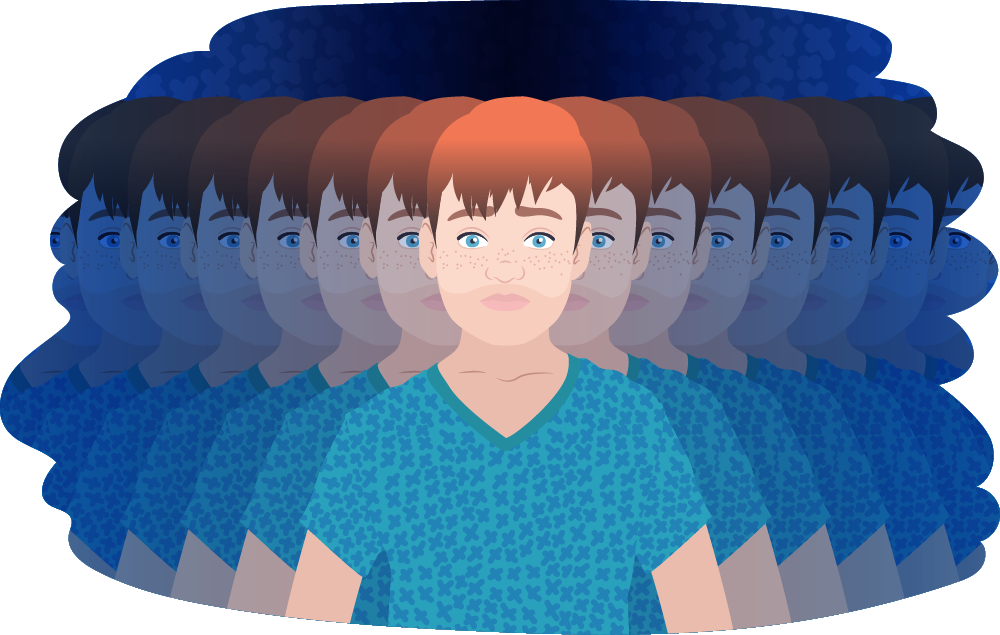How to manage anxiety
Anxiety can feel overwhelming, but there are some simple steps you can ...
READ MELet’s look at what dissociation is, and explore the different types of dissociative disorders.

Dissociation is often triggered by trauma. It is a normal physiological response – meaning it makes changes in your brain and body.
In most cases dissociation is temporary, but some people may keep feeling disconnected for a few hours, days or weeks after a trauma.
Some people experience long lasting or recurring bouts of disconnect, even when they are safe. When this happens, it might signal a dissociative disorder.
Some people theorise that dissociating may also be a protective response after a trauma – as a way to try to prevent you remembering the traumatic incident.
Dissociation exists on a spectrum. Almost everyone experiences low-level dissociation some of the time. In fact, day dreaming is an example of typical and low-level dissociation.
Here are some types of dissociation:
Derealisation: feeling as though the world around you isn’t real. This might mean feeling as though you are watching a movie, or like everyone seems 2D or fake.
Depersonalisation: an altered sense of your thoughts, behaviours, body or sense of self. For example, this can include feeling numb or like you are ‘watching from outside yourself’.
Memory loss: when you dissociate, it’s hard to form memories or pay attention to things happening around you, which might make it hard to remember things later on. Amnesia (lost memories) are the most severe form of this.
Changes in sense of identity: you might experience changes in your personality, feel like you are ‘two different people’ at once or like you have multiple personalities. Some people are aware of these changes, but some aren’t.
In dissociative disorders, the kinds of dissociation experienced are normally intense, distressing and unhelpful. Here are the key types of disorder.
Other symptoms include difficulties concentrating and memory issues, feeling ‘spaced out’, like time seems to move differently, or even like their body is different than usual, e.g. their hands seem to grow and shrink.
The person usually has memory lapses in the different personality states, which means they are unable to remember the other personalities or anything they said or did while in a different personality state.
There are multiple kinds of this kind of amnesia, including:
This might include:
People with dissociative disorders are likely to experience other mental illnesses, including depression or anxiety disorders, eating disorders, personality disorders, trauma-related disorders and substance use disorders. They might have other symptoms or impacts, including:
Sleep difficulties
Difficulties with work/study
Conflict in relationships
Other self-destructive behaviours, e.g. risk taking
“In the past, people with dissociative disorders were sometimes treated poorly, even by psychologists and psychiatrists. This is because dissociative disorders were poorly researched and understood. Fortunately, since the 1980s, research has greatly improved. All people experiencing dissociation deserve to be taken seriously and to be treated with respect and dignity.”
– Amanda, Kids Helpline Counsellor
How to manage anxiety
Anxiety can feel overwhelming, but there are some simple steps you can ...
READ MEHearing voices
What’s happening to me? Worried about why you’re hearing voices ...
READ MECoping strategies
If you are feeling stressed, anxious or just struggling to deal, there ...
READ MEHow to ask for help
Sometimes we need help but we're not able to ask for it. ...
READ METalking helps! We’re here for you.
No problem is too big or too small.
We're here 24 hours a day, 7 days a week